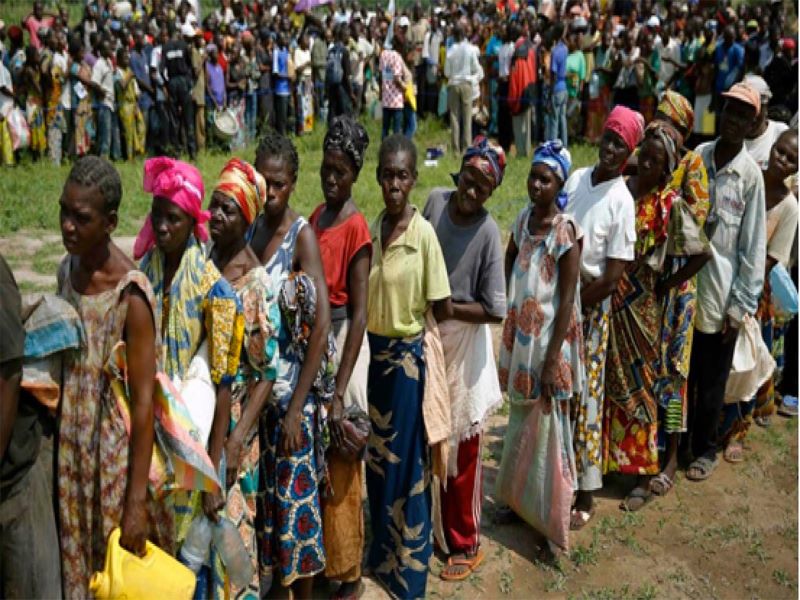By Victor Izekor
WHETHER by default or ignorance, Borno State has become a member of the dreaded club of Coronavirus-infested states. Sadly, it is an additional burden on a state already overwhelmed by the lingering Boko Haram insurgency, which has ravaged the state in particular for more than a decade.
Official statistics released about four years ago showed that Borno State alone accounted for about seven of the ten billion dollars worth of infrastructure destroyed by insurgents in the Northeast. This is besides human fatalities.
However what informed this piece is the management and fate of the internally displaced persons (IDP) camps in Borno State in the light of the latest intrusion of the state by the coronavirus pandemic.
Even before the advent of coronavirus otherwise called COVID-19 in Borno State, Governor Babagana Umara Zulum had banned all visitors to the over a dozen IDP camps across the state. Announcing the ban on visitors to the camps earlier in Maiduguri, Prof. Zulum said: “Visitors’ restriction was an adopted strategy of state government to contain outbreak of global deadly COVID-19 that has claimed thousands of lives.” He noted that the IDPs and their camps were vulnerable and were at high risk of contracting the virus if such measures were not taken. “This move was part of the administration’s strategy to contain the outbreak of the virus in IDP camps and other parts of the state,” the governor added.
Also speaking in the same vein, the chairperson of the State Emergency Management Agency (SEMA), Hajiya Yabawa Kolo, who is also a member of the COVID-19 response team, said the government took the decision to ban visitors to the camps as one of the strategies to prevent the importation of the virus into camps. “This measure becomes necessary as some of the neighbouring countries of Chad, Niger and Cameroon have cases of COVID-19,” she said.
Lamenting the porous nature of the nation’s borders, Kolo said despite the closure of land borders by the neighbouring countries, there was still an influx of IDPs into the state. She, therefore, directed all camp managers from Gamboru/Ngala, Damasak, Kala/Balge, Banki, Bama and Monguno not to accept IDPs from any of the neighbouring countries into their camps.
She went added: “We know we have a lot of threat around us following suspected cases of the virus in Cameroon and Chad, and we have some border towns very close to those countries. We do not want to go into the issue of response because even in developed countries, it is difficult for them to contain this pandemic. At our own level, we are positioning ourselves to see how best we can stop the virus from transmitting in the state.”
The IDPs camps remain the most vulnerable and fragile points of attack by coronavirus due, among others, to varied history of known and unknown ailments in the camps. Therefore any outbreak of disease or infection like the coronavirus is a cause for serious concern as this portends a calamity of unimaginable proportion.
Unfortunately, of the over two million IDPs provoked by the insurgency in the Northeast, about 80 per cent of the number is in Borno State, the hotspot of the terror war. Now that the dreaded virus has become an interloper, efforts must be redoubled to secure the safety of all the camps concerned. Professor Zulum and his aides must keep their ears to the ground and eyes wide opened to all activities in and out of the camps. Eternal vigilance, they say, is the price of liberty. The camp managers, members of the security agencies and other related personnel in the management of the camps must be properly monitored to ensure strict adherence to the rules.
There is need to enlighten the IDPs on the essence of obeying the rules and cooperating with the officials for their safety and that of the larger society. The IDP camps, with respect to COVID-19, should be seen as a keg of gunpowder that must never be allowed to explode because of the obvious incalculable damage.
It will be recalled that as a preventive measure, Governor Zulum had weeks back set up a high powered multi-stakeholders response team of technocrats, astute administrators, religious and humanitarian leaders headed by the Deputy Governor, Umar Kadafur, to advise the government on all matters relating to COVID-19.
Izekor, a journalist and public affairs analyst, writes from Maiduguri.

